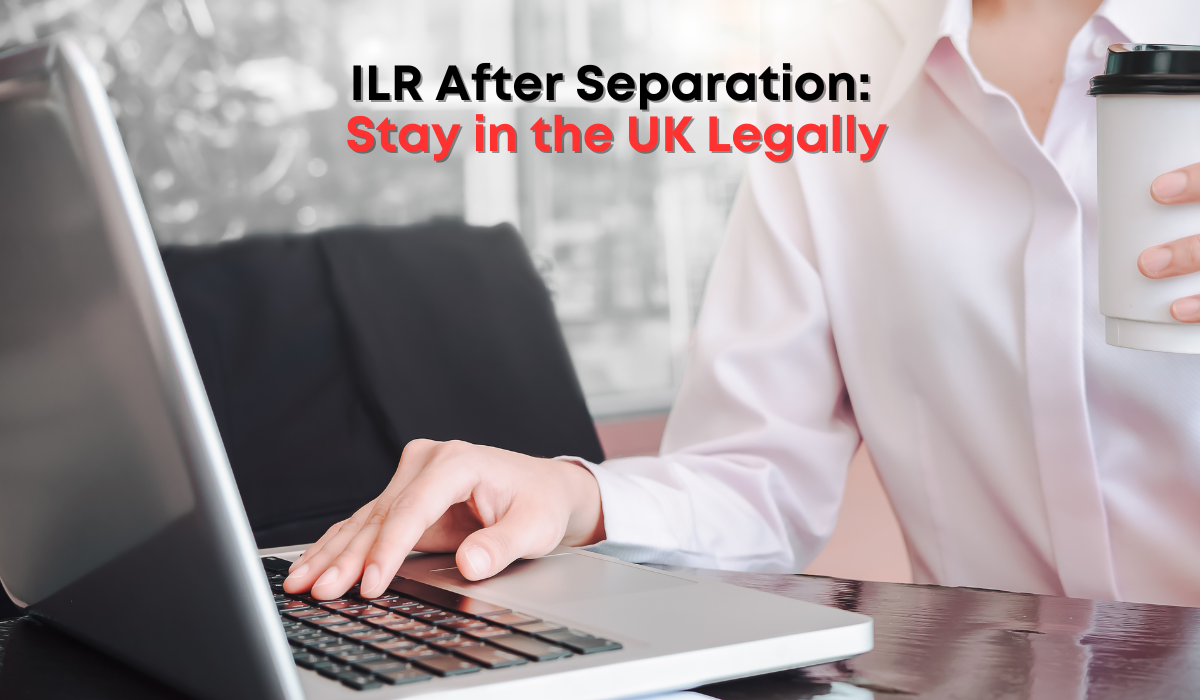Divorce or separation is a challenging experience that can complicate matters for those applying for Indefinite Leave to Remain (ILR) in the UK. For immigrants whose visas are tied to a sponsoring spouse or partner, the breakdown of a relationship can create significant hurdles to securing permanent residency. In this reflective guide, we explore the complexities of the ILR process following divorce or separation and provide essential insights for applicants navigating these challenges.
Understanding ILR in the UK
Indefinite Leave to Remain (ILR) grants foreign nationals the right to live and work in the UK permanently, free from immigration control. With ILR, individuals no longer need to extend their visas and gain unrestricted access to employment, education, and public services like the NHS. Most applicants qualify for ILR after holding a specific visa for a set period, typically five years, although the eligibility criteria vary depending on the visa route.
The road to ILR can become more complex for those on family visas, particularly when the sponsoring relationship ends. Seeking professional guidance is essential to understand your eligibility and the most suitable path to settlement in the UK.
Eligibility for ILR Post-Divorce: Key Considerations
Residency Requirements
To qualify for ILR, applicants must meet residency requirements specific to their visa type:
- Family Visa Holders: Spouse or partner visa holders must demonstrate they are in an ongoing relationship with their sponsor. Divorce or separation generally disqualifies applicants under this route unless specific exemptions apply.
- 10-Year Long Residence Route: Applicants may qualify for ILR if they have legally resided in the UK for at least ten continuous years, regardless of visa type.
Impact of Divorce on Family Visas
Divorce or separation can disrupt ILR eligibility for those on spouse or dependent visas. If your visa is tied to a sponsoring UK-based partner, your right to remain in the UK may end when the relationship does. Applicants may need to switch to another visa category, which can reset the clock on their ILR timeline. However, time spent in the UK under a spouse visa can still count toward the ten-year long residence route.
Special Considerations for Victims of Domestic Abuse
The UK recognises the vulnerability of individuals whose relationships end due to domestic abuse. Under the Domestic Violence Concession, victims of domestic abuse may apply for ILR without meeting the standard requirements. This pathway provides vital protection for those subjected to physical, emotional, psychological, financial, or sexual abuse. Evidence such as police reports, medical records, or court orders is typically required to support such applications.
Switching Visas: Alternative Routes to ILR
If your marriage or partnership ends, switching to another visa may be necessary to maintain your legal status in the UK. Common options include:
- Skilled Worker Visa: For those with employment in the UK.
- Parent Visa: For individuals with children who are UK citizens or residents.
- Innovator Founder Visa: For entrepreneurs establishing a business in the UK.
The eligibility requirements and ILR timelines vary across visa categories. For instance, the Skilled Worker Visa typically leads to ILR after five years, while the Innovator Founder Visa may allow settlement after just three years.
Practical Steps for ILR Applicants Post-Divorce
- Seek Legal Advice: Consult an immigration solicitor to determine your best course of action.
- Gather Evidence: Compile documents proving continuous residency, financial independence, and, if applicable, evidence of domestic abuse.
- Meet ILR Requirements: Ensure you satisfy residency, language, and financial criteria.
- Submit a Complete Application: Prepare and submit your application online, including all required documentation, to avoid delays or refusals.
Common Pitfalls and How to Avoid Them
ILR applications are often refused due to:
- Failure to meet residency requirements.
- Insufficient evidence of domestic abuse.
- Excessive absences from the UK.
- Failure to meet financial thresholds.
- Omitting details of criminal convictions.
To avoid these pitfalls, applicants should work closely with an experienced immigration solicitor who can provide tailored advice and ensure the application is accurate and complete.
Appealing a Refusal
If your ILR application is refused, you may have the right to:
- Appeal the Decision: Your refusal letter will outline the grounds for appeal.
- Request an Administrative Review: Challenge the decision if you believe an error was made.
- Switch Visa Categories: Explore alternative visa options to maintain your status in the UK.
Final Thoughts: Planning for a Secure Future
Applying for ILR post-divorce can be daunting, but with the right legal guidance, it is possible to secure your future in the UK. Whether pursuing the Domestic Violence Concession, the 10-year long residence route, or another visa pathway, preparation and professional support are key to a successful application. By addressing the challenges head-on, applicants can focus on rebuilding their lives and creating a stable future for themselves and their families.
For expert advice and support, consult an immigration solicitor who can guide you through every step of the ILR process, ensuring your application is robust, compliant, and primed for success.
Get in touch: For a comprehensive understanding of your options or queries on UK immigration matters, contact GigaLegal Solicitors at 02074067654 or click here to book a no-obligation consultation with an immigration expert.


